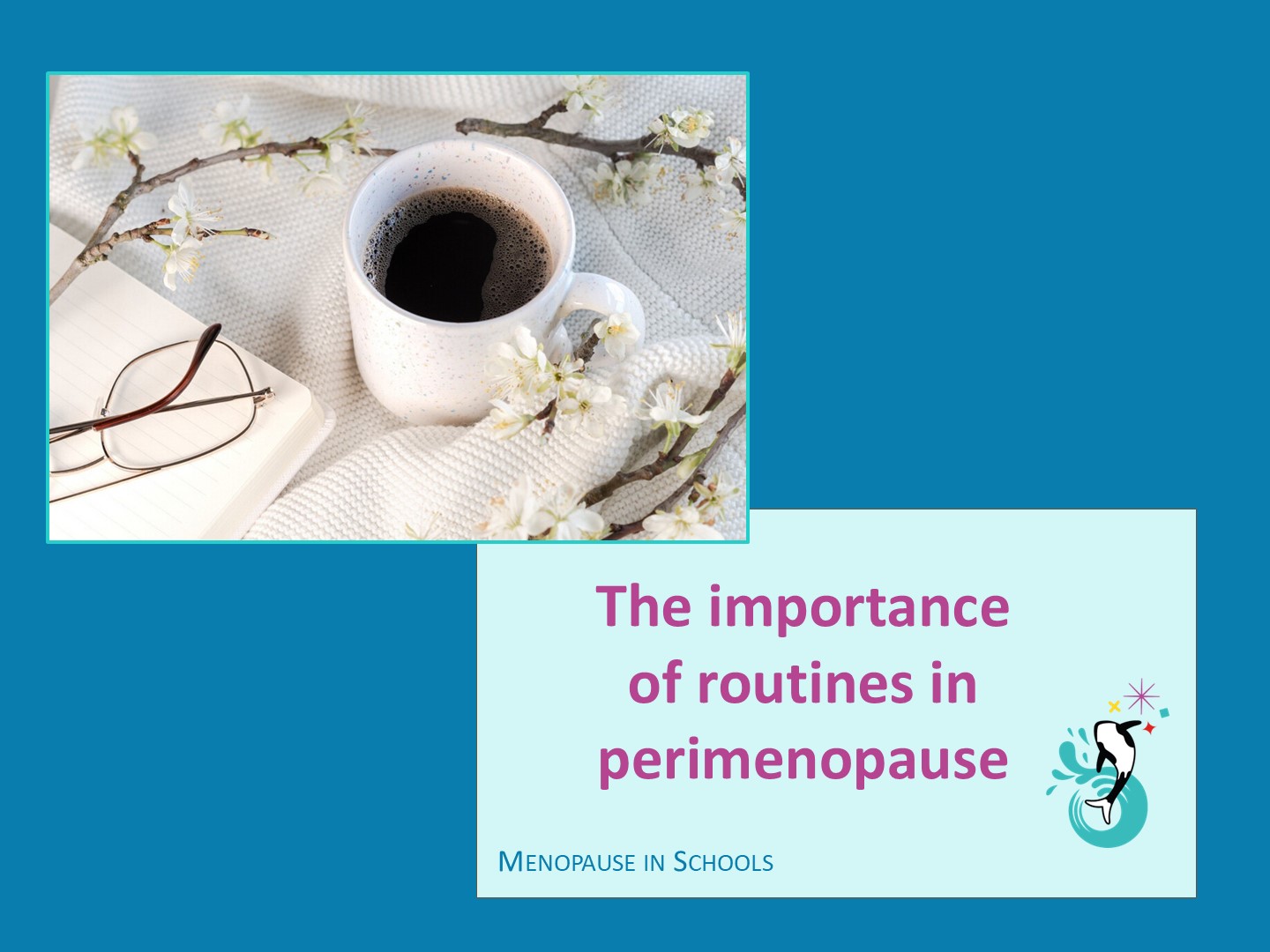When I was younger, I hated routines. I found them
restrictive and felt that they impinged on my freedom. That’s one of the
reasons I moved away from classroom teaching to work in different roles in
education.
Now I see routines as bringing me freedom, because they move
so many things from the ‘things I have to think about’ to the ‘things I don’t
have to think about’ section of my brain.
My memory is not what it used to be. I don’t make decisions
quite as fast. So all the things I don’t need to think about make space for
those things that I do. Essentially, we’re need to reduce as much of our memory
load as possible by doing things automatically.
Remember when we had to consciously remember to check our
mirrors and put on our indicators when we manoeuvred? Now we just do it. And
let’s be honest, if the driving near me is anything to go by, it’s not
menopausal women that forget to use their indicators…
So, if we have the same routine every morning and every
evening, there’s less to think about. If we have the same checklist every time
we leave the house there’s less to think about. If there’s something we always
do on the way home from work, or before or after a meal than we’re more likely
not to forgot.
This also works for the things we tend to avoid. If we
always exercise before breakfast or stop the car on the way home and go for a
little walk, then we don’t have to argue with ourselves as to whether we do it
or not.
Routines can involve the nice things too. Instead of trying
to fit the things you really enjoy, or the downtime you really need, around
everything else and ending up missing out on them, give them their own special
time too.
Those routines may take a little time to put in place. It
might help to set them up one at a time. You might find while you’re getting
going it helps to have a mnemonic (remember MSM, mirror, signal manoeuvre). KPG.
Keys, phone, glasses. It also helps to have a place to put those things!
You may need to use your devices while you get going – you
might need reminding you promised yourself a journaling or meditation session
after dinner (while other people wash up!).
And it’s important that you forgive yourself when you don’t
manage it. When you have to let something go, because life’s complicated and sometimes
you have to be flexible, don’t worry, just try to get it right the next day.
The aim is to reduce the pressure on us, not increase it.
And then you can start the work of getting other people into
the routines that take pressure of our memories, and that may well include colleagues
and pupils…

